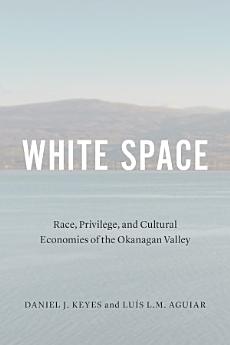White Space: Race, Privilege, and Cultural Economies of the Okanagan Valley
About this ebook
Contributors to this perceptive collection critique the cultural economics of whiteness and white supremacy. The first half documents the historical construction of whiteness: how settlers and their ancestors have sought to exalt pioneers by erasing non-whites from the region’s heritage while Indigenous people resist this white-out. The second half explores the persistence of whiteness as an organizing principle in the neoliberal deindustrialized present.
White Space moves beyond appraising whiteness as if it were a solid and unshakable category. Instead it offers a powerful demonstration of how the concept can be re-envisioned, resisted, and reshaped in contexts of economic change.
About the author
Daniel Keyes is an associate professor in the department of English and Cultural Studies at the University of British Columbia, Okanagan, and was the founding coordinator of its Cultural Studies program. Along with a variety of book chapters, he has contributed articles to Theatre Research in Canada/Recherches théâtrales au Canada and Home Cultures: The Journal of Architecture, Design and Domestic Space. Luis L.M. Aguiar is an associate professor of sociology in the Irving K. Barber Faculty of Arts and Social Sciences at the University of British Columbia, Okanagan. He is co-editor, with Andrew Herod, of The Dirty Work of Neoliberalism: Cleaners in the Global Economy and, with Christopher J. Schneider, of Researching amongst the Elites: Challenges and Opportunities in Studying Up.
Contributors: Luis L.M. Aguiar, Lawrence Berg, Natalie Chambers, Dr. Bill Cohen, Jon Corbett, Carl E. James, Daniel Keyes, Audrey Kobayashi, Sheila Lewis, Janet MacArthur, Donna M. Senese, Stephen Svenson, Delacey Tedesco.





